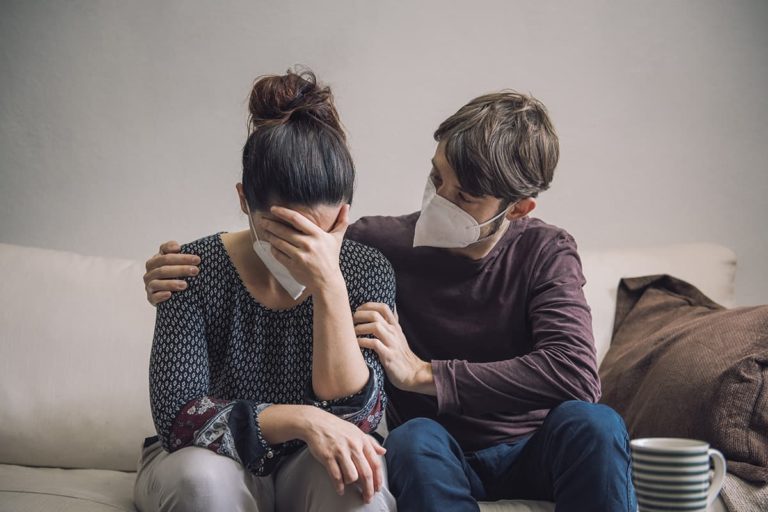As the COVID-19 pandemic marches on, more people are suffering from anxiety, loneliness, and depression – all of which can lead to addiction. Social distancing, the quarantine, financial problems, job loss, health problems, and the stress of dealing with the pandemic have created a strong connection between addiction and COVID-19.
This has put a significant strain on the healthcare system, as addiction treatment programs in Maine try to manage the influx of people affected by addiction and coronavirus. Even groups such as AA and SMART Recovery have reported an increase in members, as fewer people can cope with the effects of COVID-19. In essence, COVID-19 has created the perfect storm for substance abuse, putting more people at risk of addiction. Liberty Bay Recovery Center is here to help.
Isolation During the Pandemic
Although not all areas of Maine are under mandatory quarantine, many people are in self-quarantine due to their fear of contracting the coronavirus. Isolation over a long period can lead to loneliness, which inevitably turns into depression. An isolated person who becomes depressed may turn to drugs or alcohol to cope with their situation.
This form of self-medication can turn into a habit. However, drinking or taking drugs does not relieve depression. Instead, it causes the person to become more depressed. The vicious relationship between substance abuse and depression worsens until the addicted person needs professional help from an addiction rehab program.
Quarantine and Relapse
The relationship between addiction and COVID-19 can easily affect someone in addiction recovery. After completing a substance abuse treatment program, the person in recovery needs an extensive support network to prevent relapse. Without support, the risk of relapse is much higher. However, many programs, such as alumni programs, support groups, or sober living houses, may have limited resources due to social distancing guidelines.
A person in recovery may have no choice but to stay at home and attempt to maintain sobriety on their own. This can be difficult if home life is stressful or not conducive to recovery. For instance, if there is conflict in the family, financial problems, or even something as simple as a chaotic home environment, it can trigger a relapse.
COVID-19 and Prescription Drug Abuse
A person taking medication for anxiety, depression, or chronic pain needs constant monitoring to ensure they do not become addicted to the drug. If the effects of the drug wear off, a person suffering from a mental health issue like anxiety may increase their dosage to manage the symptoms of their condition.
This increases the risk of overdose or addiction over time. It also presents a situation where the user may try to find addiction medication from illegal sources. To combat the connection between addiction and coronavirus, treatment centers need to provide Internet services that allow patients to access prescription medication while creating accountability through online appointments.
Treatment Services Available During COVID-19
Fortunately, treatment centers now offer addiction treatment programs that include online and telehealth services. Clients now have access to online services, including:
- Individual therapy program
- Family therapy program
- Substance abuse support groups
- Prescription medication services
- Educational resources
- Online alumni programs
Many of these programs put clients and their families in touch with the same types of treatment available on-site. However, these services are similar to an outpatient addiction treatment program. A person who cannot manage their addiction or mental health issue should continue to seek treatment at a residential treatment program.
Learn More About Addiction and COVID-19 at Liberty Bay
The more you learn about the connection between addiction and COVID-19, the more you have a chance of overcoming your addiction. To find out more about addiction treatment programs in Maine, contact Liberty Bay at (855) 607-8758. We offer comprehensive treatment for all types of addictions.




